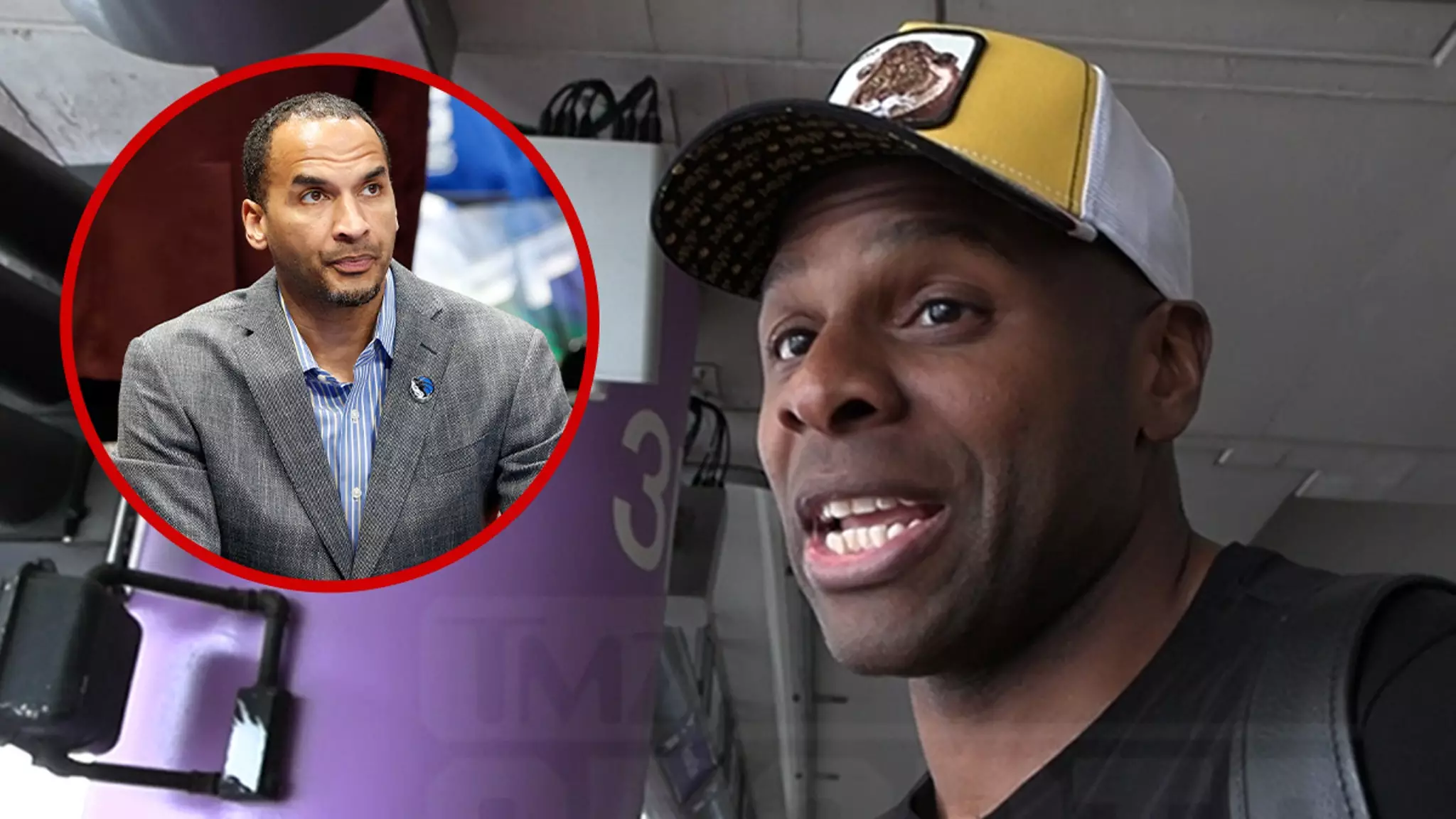The Dallas Mavericks faced a seismic shift in its franchise dynamics when Nico Harrison made a stunning decision to trade away the face of the franchise, Luka Doncic. This trade, executed in February, sent shockwaves through the NBA community and stirred a tempest of emotions among avid Dallas supporters. The gravity of losing a player of Doncic’s caliber, a franchise cornerstone and fan favorite, left many bewildered, questioning Harrison’s vision for the team’s future. Could this gamble redefine the Mavericks, or will it haunt the franchise for years to come?
Brendan Haywood’s Perspective
While these tense developments may have left fans reeling, former Maverick Brendan Haywood offered some clarity during a recent encounter with TMZ Sports. Haywood articulated that although the winds of change can be difficult, they may carry a glimpse of potential—one predicated on a commitment to bolstering the team’s defensive capabilities. By emphasizing that “defense wins championships,” Haywood sheds light on Harrison’s underlying philosophy—transforming the Mavericks from a run-and-gun squad into a more strategically focused unit.
But let’s not mince words. The depth of affection that Dallas possesses for Doncic is ethereal, woven into the fabric of the city’s identity. Doncic’s charismatic gameplay and competitive spirit made him more than just an athlete; he was a symbol of hope and possibility. Haywood recognizes this sentiment, stating, “His truth is his truth.” This candid acknowledgment underlines the tension between operational strategies and emotional attachments that the Mavericks’ management faces.
The Crucial Next Steps
What now for the Mavericks? According to Haywood, the destiny of Harrison’s strategy hinges on next season’s performance. The resilience of injury-hit players and the integration of new talents will play critical roles. What happens with Kyrie Irving remains a pivotal question—can he form a dynamic duo with the returning Anthony Davis, should the pieces align? The success of these developments will determine Harrison’s longevity in a role that now feels as precarious as walking on a tightrope. Winning, as Haywood insists, might just “cure all”—but the path to victory appears fraught with challenges.
Replacing the irreplaceable will take more than mere talent acquisition. It requires a reimagining of what the Mavericks stand for—a blend of defensive tenacity and offensive ingenuity. The burden of expectations weighs heavily, but the trophies are forged in adversities.
A New Era or A Recipe for Regret?
Ultimately, Harrison’s decision-making stands at a crossroads: Will it usher in a new era of Mavericks’ supremacy, or will it become a footnote in a saga of missteps? The stakes are sky-high, and the Mavericks’ loyal fanbase offers no quarter for mediocrity. The franchise must adapt swiftly or face the wrath of a jilted fan community. As Haywood so astutely notes, the coming years will be pivotal—not just for Harrison’s career, but for the very soul of the Dallas Mavericks. All eyes will be on this transformative period, where every play could either embellish or tarnish the legacy of a franchise hungry to reclaim its glory.

